Your cart is currently empty!
How to Understand Acne: Causes and Treatments
Acne is a common skin condition that affects people of all ages and can have a significant impact on self-esteem and confidence. Piuny Cosmetics provide you comprehensive guide, we’ll delve into the causes of acne, different types of acne, and effective treatments to manage and prevent breakouts.
What Causes Acne?
- Excess Sebum Production: Overproduction of sebum by the sebaceous glands can clog pores and lead to it.
- Bacterial Overgrowth: Propionibacterium acne bacteria thrive in clogged pores, causing inflammation and lesions.
- Hormonal Changes: Fluctuations in hormone levels, especially during puberty, menstruation, pregnancy, or hormonal disorders, can trigger acne.
- Genetics:Family history and genetic predisposition can play a role in an individual’s susceptibility to acne. If one or both parents have a history of acne, their children may be more likely to develop it as well.
- Lifestyle Factors: Poor diet, stress, lack of sleep, and certain medications can exacerbate acne.
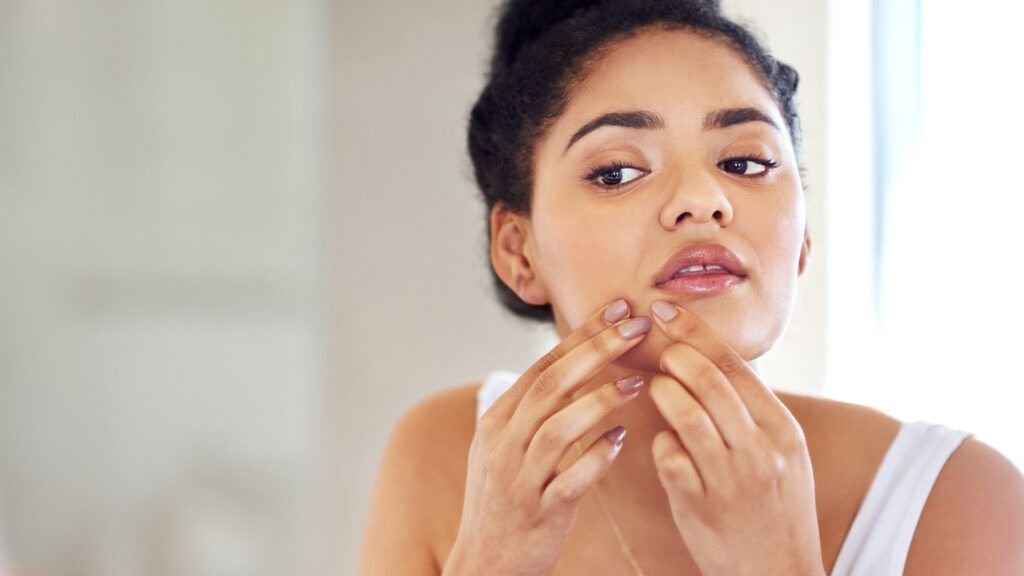
Types of Acne
Whiteheads: Closed comedones formed by clogged pores beneath the skin’s surface.
Blackheads: Open comedones caused by oxidized sebum and debris blocking pores.
Papules: Small, red bumps without pus, resulting from inflammation and bacterial infection.
Pustules: Pimples filled with pus, typically indicating a more severe inflammatory response.
Nodules and Cysts: Deep, painful lesions formed by severe inflammation and bacterial infection, often leading to scarring.
Effective Treatments for Acne
- Topical Treatments: Over-the-counter and prescription topical medications containing ingredients such as benzoyl peroxide, salicylic acid, retinoids, or antibiotics can help unclog pores, reduce inflammation, and kill causing bacteria.
- Oral Medications: Oral antibiotics, hormonal medications (e.g., birth control pills), and isotretinoin (Accutane) may be prescribed by a dermatologist for moderate to severe it cases.
- Lifestyle Modifications: Practicing good skincare habits, maintaining a balanced diet, managing stress, and avoiding harsh skincare products can help prevent breakouts.
- Professional Treatments: Dermatological procedures such as chemical peels, microdermabrasion, laser therapy or injections may be recommended for severe or treatment-resistant acne.
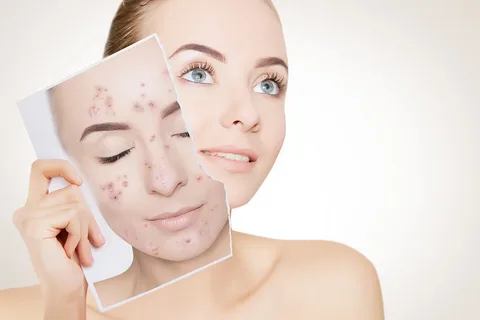
Prevention and Management
- Gentle Cleansing: Wash the face twice daily with a mild cleanser to remove excess oil, dirt, and impurities without stripping the skin.
- Moisturizing: Use oil-free, non-comedogenic moisturizers to keep the skin hydrated and prevent dryness.
- Sun Protection: Apply a broad-spectrum sunscreen with SPF 30 or higher daily to protect the skin from UV damage and reduce the risk of post-inflammatory hyperpigmentation.
- Avoiding Irritants: Choose skincare and cosmetic products labeled as non-comedogenic and free of harsh ingredients that can irritate the skin and exacerbate .
Here are some common reasons why acne may develop
- Clogged Pores: When the hair follicles or pores become blocked with sebum and dead skin cells, it creates an environment for acne-causing bacteria to thrive. This can result in inflammation, leading to various types of it lesions.
- Bacterial Infection: Protectionism acne is a type of bacteria that naturally resides on the skin. However, when trapped in clogged pores, it can multiply rapidly and contribute to the development of inflammatory lesions.
- Hormonal Changes: Fluctuations in hormone levels, particularly during puberty, menstruation, pregnancy, or hormonal disorders like poly cystic ovary syndrome (PCOS), can stimulate the sebaceous glands and increase sebum production, leading to it breakouts.
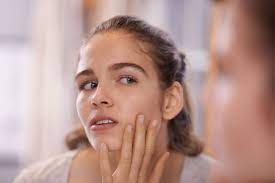
- Dietary Factors: While the link between diet and it is still being researched, some studies suggest that certain foods high in refined carbohydrates, sugars, and dairy products may exacerbate acne in some individuals. However, the impact of diet on it can vary from person to person.
- Stress: Stress can trigger hormonal changes in the body, leading to increased sebum production and inflammation, which can exacerbate acne breakouts.
- Medications: Some medications, such as corticosteroids, hormonal medications (e.g., birth control pills), and certain antidepressants, may contribute to development as a side effect.
- Skincare and Cosmetic Products: Using skincare and cosmetic products that are comedogenic (i.e., pore-clogging) or contain irritating ingredients can aggravate or contribute to the formation of new breakouts.
- Environmental Factors: Exposure to environmental pollutants, humidity, and certain occupational or environmental factors can also influence and development, particularly in individuals with sensitive or prone skin.
It’s important to note that it can be influenced by a combination of these factors, and the specific triggers may vary from person to person. Understanding the underlying causes of it can help individuals adopt appropriate skincare routines, lifestyle modifications, and treatment strategies to effectively manage their condition. If it persists or becomes severe, it’s advisable to seek professional advice from a dermatologist for personalized treatment recommendations.
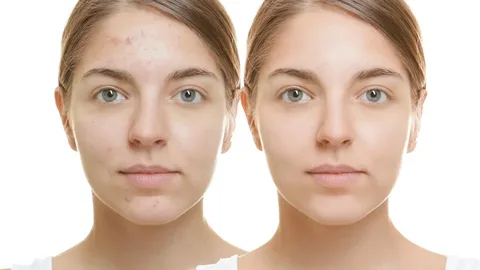
Conclusion
Acne is a multi factorial condition influenced by genetics, hormones, lifestyle factors, and environmental triggers. Understanding the underlying causes of acne and implementing appropriate treatment strategies can help individuals effectively manage their condition and achieve clearer, healthier skin. Consulting with a dermatologist or skincare professional can provide personalized recommendations tailored to specific acne concerns and skin types, leading to improved outcomes and enhanced quality of life. Remember, patience and consistency are key when it comes to treating, and with the right approach, positive results can be achieved.

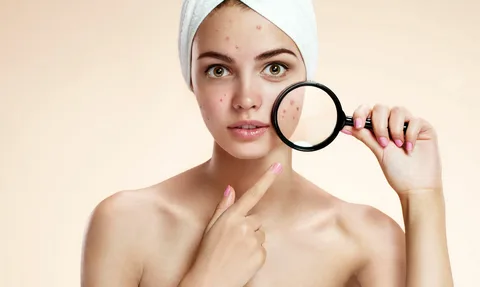
Leave a Reply